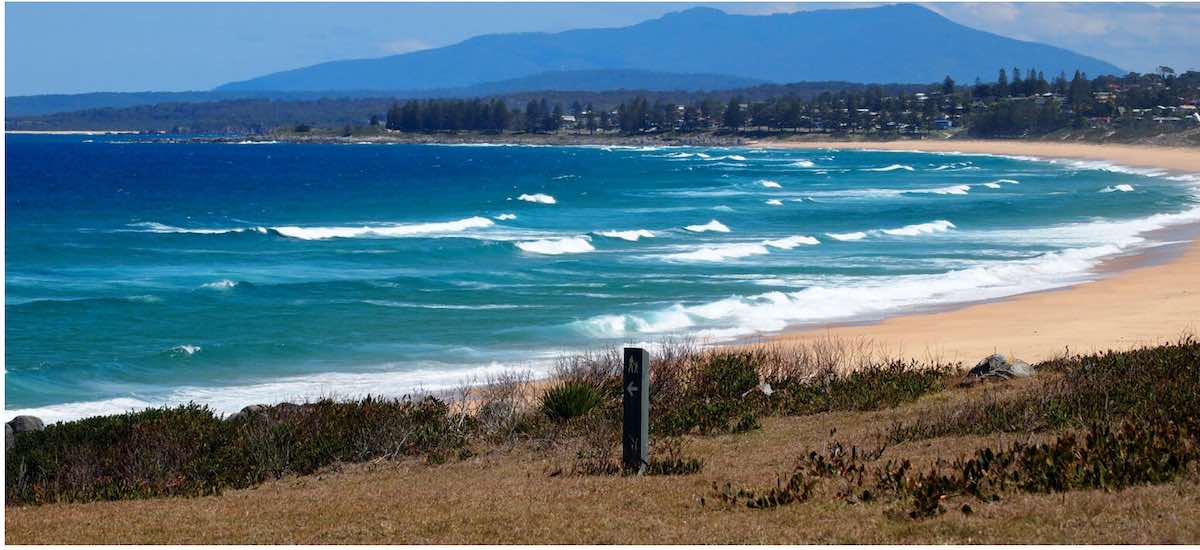
A new project led by the Australian National University will assess the feasibility of transitioning regional New South Wales communities from grids exposed to bushfires and other natural disasters to a resilient network of islandable renewables and battery-based microgrids.
The Southcoast Microgrid Reliability Feasibility (SµRF) project was last week named as one of 20 projects around Australia to be awarded a share of $25.6 million in funding via round two of the federal government’s Regional and Remote Communities Reliability Fund.
The project is being led the Battery Storage and Grid Integration Program at ANU in partnership with the Southcoast Health and Sustainability Alliance (SHASA), network company Essential Energy, and technology company Zepben.
The coalition will use the $3.125 million in funding over three years to conduct a community-led design of future energy systems; quantify the value of reliability; model the operation of eight microgrids across the region; assess implementation costs; and explore ways to fast-track implementation.
SHASA president, Kathryn Maxwell, said the project came about after the community group approached ANU, in a bid to find solutions to the region’s “power vulnerability,” which she says came into stark relief during the extreme bushfire season of 2019-20 in Australia.
“Our Eurobodalla community here on the south coast is one of many regional communities whose vulnerability to bushfires and power outages was demonstrated tragically in the Black Summer of 2019-20,” Maxwell said in a statement last week.
“Our community group approached ANU to partner with us to help find solutions to this power vulnerability. We are excited with the commitment from all four partners in this feasibility study to help make Eurobodalla’s power more reliable and resilient.”
Dr Bjorn Sturmberg, a research leader in the ANU Battery Storage and Grid Integration Program and an long-time leader in Australia’s solar microgrid space, said the need to find more reliable, resilient and sustainable ways to power regional communities was becoming increasingly urgent.
“As climate change increases the frequency and intensity of natural disasters, it’s ever more critical to bolster the resilience of regional community’s power supplies,” he said last week.
“In this project we are exploring how microgrids – which pool energy generation and storage systems to maintain the power supply of a community when disconnected from the national grid – can best be deployed on the South Coast.”
Dr Hedda Ransan-Cooper, a social research leader within the ANU’s BSGIP is keen to ensure that communities understand the options available to them for a more resilient grid – and managing the risks.
“There’s a lot of opportunities, but also risks with devolving responsibility of managing energy at the local scale,” Ransan-Cooper said.
“Our study will identify any missing capacities and capabilities to ensure that communities and relevant agencies are equipped with the social and governance infrastructure to manage microgrids.
“We know it’s not just the technology we have to get right, but the social and policy dimensions too.”
Equally important to the success of this particular feasibility project – and to the future implementation of community microgrids, in general – is the participation and cooperation of network companies; in this case, Essential Energy.
“Microgrids will undoubtedly form part of our broader future network that will incorporate more resilient features such as composite poles, battery storage and stand alone power systems where appropriate,” said Essential Energy’s general manager of customer and network services, Luke Jenner.
“We’re excited to be a part of this feasibility project that will help us to understand how microgrids can support a more resilient network for our customers, especially those who live in areas more prone to outages from natural disasters, like floods, fires and storms.”
Outputs of the three-year collaborative project will include business cases and implementation plans for each site and learnings for regional communities.

Sophie is editor of One Step Off The Grid and editor of its sister site, Renew Economy. Sophie has been writing about clean energy for more than a decade.

